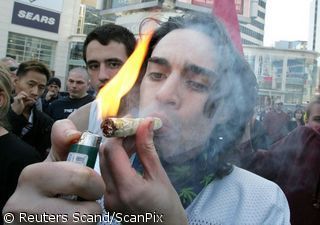Poland and Russia on Saturday mourned thousands of people massacred by the Soviet NKVD secret police during World War Two.
Published:
4 September 2000 y., Monday
Poland and Russia on Saturday mourned thousands of people massacred by the Soviet NKVD secret police during World War Two and vowed to strengthen the often strained relations between the two neighbors.
Polish Premier Jerzy Buzek and Russian Interior Minister Vladimir Rushailo dedicated a cemetery marking the mass grave of some 6,000 Poles shot in pine forests outside the Russian town of Mednoye, 200 km (125 miles) northwest of Moscow.
It is one of several mass graves in Russia and Ukraine that hold the bodies of some 22,000 well-educated Poles, including reserve officers, border guards, policemen and civil servants who the Soviets feared would oppose their control of Poland.
Soviet troops invaded Poland in September 1939 under a secret pact with Nazi Germany to divide Eastern Europe. The Germans broke the pact in 1941 when they invaded the Soviet Union and the territories it had occupied.
In 1943, German troops advancing eastward found the bodies of some 4,000 Polish army officers in a mass grave in Katyn and accused Soviet troops of killing them.
The Soviet Union maintained for decades that the Nazis had killed the men during their occupation of the area, admitting responsibility only in the final days of Mikhail Gorbachev's perestroika period. During World War Two, Poland's underground government also searched for officers who disappeared from prisoner of war camps near other towns, including Tver in Russia, from where prisoners were taken to the forest outside Mednoye. The bodies of about 7,000 Poles have never been found.
Šaltinis:
Central Europe Online
Copying, publishing, announcing any information from the News.lt portal without written permission of News.lt editorial office is prohibited.
The most popular articles
 75 years after Moscow first opened its underground train system, Muscovites can ride a restored vintage train.
more »
75 years after Moscow first opened its underground train system, Muscovites can ride a restored vintage train.
more »
 A glacier melt threatens to cause massive flooding and destroy a centuries old monastic fortress in the remote country of Bhutan.
more »
A glacier melt threatens to cause massive flooding and destroy a centuries old monastic fortress in the remote country of Bhutan.
more »
 What do countries as geographically diverse as Saudi Arabia, Uganda and Jamaica have in common? All of them criminalised homosexuality.
more »
What do countries as geographically diverse as Saudi Arabia, Uganda and Jamaica have in common? All of them criminalised homosexuality.
more »
 Human rights is a key issue for the European Parliament and MEPs Monday took a first look at what the European Union did last year, when they discussed the EU annual report on human rights in the world.
more »
Human rights is a key issue for the European Parliament and MEPs Monday took a first look at what the European Union did last year, when they discussed the EU annual report on human rights in the world.
more »
 Researchers found high levels of mecury in a Japenese dolphin-hunting town, but say the mecury has no ill effects.
more »
Researchers found high levels of mecury in a Japenese dolphin-hunting town, but say the mecury has no ill effects.
more »
 Crowds of Mexicans marched peacefully through the capital city on Saturday demanding the legalisation of marijuana.
more »
Crowds of Mexicans marched peacefully through the capital city on Saturday demanding the legalisation of marijuana.
more »
 Prisoners are reported to have dramatic improvements in behaviour after pets are introduced in a new scheme.
more »
Prisoners are reported to have dramatic improvements in behaviour after pets are introduced in a new scheme.
more »
 Israeli Ultra-Orthodox MPs are lining up against activists proposing a total ban on furs, saying traditional fur hats are an important part of their religious tradition.
more »
Israeli Ultra-Orthodox MPs are lining up against activists proposing a total ban on furs, saying traditional fur hats are an important part of their religious tradition.
more »
 EU Member States should organise social protection, including at least 14 weeks' maternity allowance, for self-employed women and self-employed men's wives or life partners, in accordance with national laws, said the Women's Rights Committee on Tuesday.
more »
EU Member States should organise social protection, including at least 14 weeks' maternity allowance, for self-employed women and self-employed men's wives or life partners, in accordance with national laws, said the Women's Rights Committee on Tuesday.
more »
 How are the European Parliament, the European Commission and other parts of the European Union supposed to interest people and explain their work?
more »
How are the European Parliament, the European Commission and other parts of the European Union supposed to interest people and explain their work?
more »